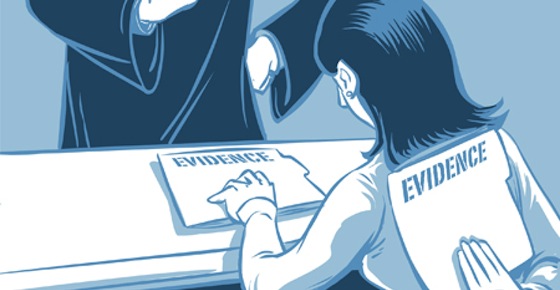
Prosecutorial misconduct is conduct which violates court rules or ethical standards of law practice. Washington’s Rules of Professional Conduct (RPC’s), court rules and case law govern how Prosecutors manage their cases. For example, RPC 3.4, disallows prosecutors from stating their personal opinions at trial. Additionally, RPC 3.1 prevents lawyers from bringing frivolous proceedings.
THE ISSUES: HOW DO PROSECUTORS VIOLATE A DEFENDANT’S RIGHTS?
Examples of prosecutorial misconduct may include the following:
(1) Courtroom misconducts.
(2) Hiding, destroying or tampering with evidence, case files or court records.
(3) Failing to disclose evidence that might tend to exonerate the defendant.
(4) Threatening, badgering or tampering with witnesses.
(5) Presenting false or misleading evidence.
(6) Selective or vindictive prosecution.
(7) Denial of a defendant’s speedy trial rights.
(8) Using unreliable and untruthful witnesses and snitches.
THE REMEDIES: WHAT CAN BE DONE TO PEACEFULLY PREVENT PROSECUTORIAL MISCONDUCT AND PROTECT A DEFENDANT’S RIGHTS?
The first and most effective action a defense attorney should do is simply contact the Prosecutor and attempt to resolve whatever conflict exists. A friendly chat can clear the waters when simple misunderstandings result in bruised egos.
It is very important to maintain cordial and friendly relationships with the Prosecution. However, if peacemaking efforts fail, a competent defense attorney should try persuading the Prosecutor to follow their obligations under CrR 4.7.
Entering an Agreed Omnibus Order or arguing a motion to compel discovery are non-threatening ways to facilitate cooperation and address any discovery issues. Defense Counsel should seek more serious measures if there’s concern that the Prosecutor is purposefully mismanaging a client’s case. In the end, effective pretrial motion practice makes a solid record for appeal. It ensures the Prosecutor is doing their job correctly; is not prejudicing the defendant is and not hiding valuable information.
MOTION TO DISMISS UNDER RPC 8.3 AND REQUEST FOR SANCTIONS UNDER CR 11.
Sometimes, more extreme measures are necessary when peacekeeping efforts fail. For example, under RPC 8.3, a defense attorney can seek dismissal of a case if there’s enough evidence of prosecutorial misconduct. RPC 8.3 also allows dismissal of a criminal case when prosecutorial misconduct prejudices the rights of the accused.
Finally, Court Rule 11 (CR 11) involves court sanctions on attorneys who file frivolous pleadings and/or criminal charges (another aspect of prosecutorial misconduct). The judge reviews allegations of prosecutorial misconduct under an “abuse of discretion” standard. The defendant must prove that the Prosecutors comments and/or management of the case was improper and prejudicial to the defendant. Again, instances of prosecutorial misconduct are rare.
Most Prosecutors conduct their duties with integrity and candor. Nevertheless, immediately inform your defense counsel if you believe the Prosecutor is unfairly prosecuting you. Your liberty and freedom depend on it.
Additional resources provided by attorney Alexander Ransom:
- State v. Pinson: When Prosecutors Violate a Defendant’s 5th Amendment Right Against Self-Incrimination.
- State v. Lindsay: When Attorneys Act Poorly.
- Prosecutorial Misconduct Is Rarely Punished, Says New Study.
- State v. Brooks: WA Court Rightfully Dismisses Criminal Charges Because Prosecution Withheld Evidence.
- When Prosecutors Violate the Advocate-Witness Rule: United States v. Rangel-Guzman.
- State v. Quaale: Mistrials Happen When Police Officers Offer Opinion Testimony.
- RPC 3.4: FAIRNESS TO OPPOSING PARTY AND COUNSEL.
- COURT RULE 4.7: THE PROSECUTOR’S OBLIGATIONS TO PROVIDE EVIDENCE.
- RPC RULE 8.3: REPORTING PROFESSIONAL MISCONDUCT.
- CR 11: SIGNING AND DRAFTING OF PLEADINGS, MOTIONS, AND LEGAL MEMORANDA: SANCTIONS
- RPC 3.1: MERITORIOUS CLAIMS AND CONTENTIONS.
- State v. Espey: Prosecutor’s Improper Comments During Trial Reverses Defendant’s Convictions
- State v. Fedoruk: Ineffective Assistance of Counsel and Prosecutorial Misconduct
- State v. Allen: Prosecutor Commits Misconduct With the Phrase, “Should Have Known.”
- State v. Walker: WA Supreme Court Decides Prosecutor’s PowerPoint Presentation Violates Defendant’s Right To A Fair Trial






